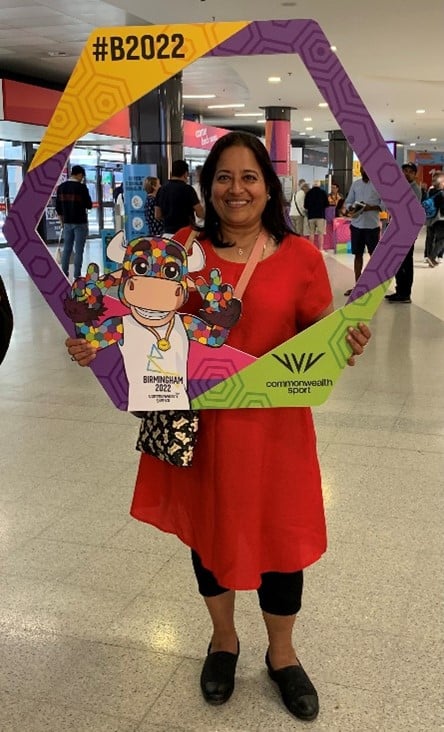We interviewed Latha Nagaraj Konda, Test Engagement Manager at Sogeti UK on her experience and thoughts on women in tech.

-
What does your job role involve?
As an Engagement Lead and Test Delivery Manager, I drive Quality Assurance and Testing for my client organisations. As a Quality Engineering and Test Lead, I have helped a number of clients build quality into their delivery. The domains I have worked in include Public Sector, Retail, Utilities, Pharma, and Manufacturing, with my most recent engagement being with a Public Healthcare organisation. I am responsible for the successful running of the account from delivery, people leadership and financial management aspects. In addition, I build client relationships, bring in continuous improvements and innovation to the customers, leveraging my knowledge and multi-domain experience. My key objective for this engagement is to ensure delivery of quality solutions into production environments.
-
What made you choose a career in technology?
Having spent my early years in a developing country, from a period of digital divide, and experiencing the rapid evolution of technology around me as I grew up, I developed a keen interest to enter the technology world myself. When typewriters were still being widely used, it was quite fascinating to pursue a career in technology. I learnt typewriting myself as I believed this would help me type faster. In fact, I still find this skill comes to use for typing long reports and documents faster.
-
Did you study an IT or technology related subject at GCSE, A-Level or University?
I graduated as a Bachelor of Engineering in Computer Science. When I was applying for a university education, Computer Science was the sought-after course, for girls, where other Engineering courses such as Mechanical and Civil Engineering where primarily male dominated. There was a huge supply-demand gap for this course during this time and competition to get an offer from leading Universities was very high. The high demand for software engineers was also due to booming IT development corridors in India.
-
Did you get any work experience in IT or technology before this role?
With my Computer Science background giving me strong knowledge on computing theory and programming experience in multiple languages, I started my career in IT in a leading software house. I started as a developer in IBM midframe systems followed by programming in client/server technologies. My passion in testing and attention to detail and structured approach were key enablers for me to take up the testing profession 3 years into my career. I have continued working in IT throughout my career by taking multiple roles in the testing profession.
-
Do you think there is a lack of females in the IT and tech sector?
This used to be case when I started my career in the early 90’s. With less women taking up university education and even lesser taking up technology courses, the ratio of female employees in the IT sector was relatively low. This whole scenario has kept improving since, with more women coming into IT in the last couple of decades. This has been possible with the organisational changes, supportive policies to address gender gap, Diversity and Inclusion programmes, Women’s networks and encouragement from existing women folk in organisations.
-
Do you find there is a stereotype that a career in IT or technology is just for men?
There were times early in my career when I was the only female employee in a meeting, or in a team who worked only after office hours. Also, company leadership and senior management positions were male dominated based on views that they do not need maternity leave or childcare needs. As a female employee, I overcame these situations through my performance and innovative work practices. I was able to wrestle my way through this dominance by eliminating long standing stereotypical views. In my view, a career in IT is equally suitable for women. Given the right cultural backing and with extensive support from the organisations, women have no limitations to excel and progress in IT.
-
What would entice women to study technology related courses?
The interest in technology must begin earlier on, and it must start from school where strong foundations in STEM subjects are built. More exposure to technology related subjects with a right balance to both theory and practice including dedicated sessions to bring awareness to the students are required. Several organisations already do this by volunteering to take this information to schools through industry and education partnerships. The Open Days in universities will need to focus more on the opportunities available for women. It is crucial that. the course content should be made relevant to the current context so any student, not just women, can decide if they wish to pursue their career in IT. The student should also be able to see the relevance of the subjects in the course to the practical application in their future jobs.
-
Are there barriers when it comes to women getting into tech?
I am a firm believer of seeing challenges/barriers as opportunities and finding a solution that works for you. While the most obvious route to get into tech is through a graduate programme, there are also several other options for women to get into the tech industry. There are Apprenticeship programmes, Code Your Future programmes, many Enterprise-led initiatives, and Return to Work schemes where all of these encourage women to take roles in tech.
-
How could we encourage more women to start a career in tech?
By IT organisations taking the knowledge of the tech careers into schools and universities. By making it more attractive for women in terms of providing flexibility for work life balance, for example, flexible hours, part time or WFH (work from home) options, providing equal opportunities for career progression, addressing gender pay gap to name a few. Most organisations already have programmes to address these and providing the visibility of these support programmes to young girls will help them choose their career in tech.
-
What advice would you give to young women at the start of their career?
Come with an open mind, be open to explore options to find what best suits your interests. Be yourself, do not be pressurised to follow the herd, your unique nature and personality define your personal brand. Embrace a growth mindset to keep learning as a continuous process throughout your career. Learning from your leaders, peers, team; learning not only related to your career but learning related to your passions, learning yourself. Speak up when you need to – if you do not ask, you do not get! Be it a role change or promotion!






